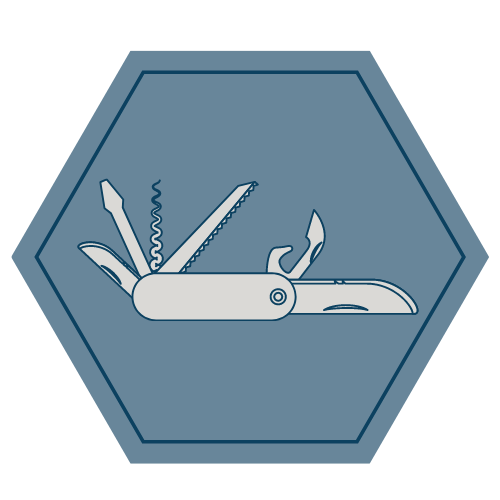I Was Relentlessly Bullied as a Child. Here’s What That Taught Me About Community
I was bullied my entire childhood. In fact, one of my earliest memories was being encircled by all my classmates in the schoolyard, their chants encouraging a red-faced, clench-fisted (much larger) bully to “kick my ass.” And nobody ever lifted a finger to help. This wasn’t exactly the “gentle parenting” era, so my childhood is filled with similar stories.
As you can imagine, the relentless abuse eroded my self-esteem, my trust in others, and my sense of security. I carefully planned my walk home to avoid John S., who’d wait just off campus to beat me up now and again. I hid from Kirk M. at the local ski hill, after he’d punched me in hopes I’d go careening down a flight of stairs in ski boots. I tried to look casual while scanning cafeteria lunch tables for a safe place to sit. I won’t even tell you what the kids at summer camp did. I became isolated, and introversion became my psychological safety. (In case you know me and you’re calling bullshit, just know I learned to mimic extroversion in hopes of acceptance.)
I’m not here to throw a pity party, and I’m not looking for sympathy. I want you to learn from my experience, because all that trauma left me with a highly attuned antenna for the dynamics of social inclusion. I’m not talking about the bullshit performative kind of “inclusion”, by the way, but the authentic kind. Believe me, I can tell the difference at a gut level, and fast. And I’m far from alone. I’m not a psychologist, but I presume most people have some form of social trauma, it’s just a matter of the form and degree, and whether or not they recognize it for what it is (especially if their childhood pre-dated the ‘90s — those were equally amazing and fucked up times to be a kid).
Anyway, up until my sophomore year of high school, I desperately longed to be accepted by the 'cool kids' and jocks, not realizing that my place was among the “unconventional kids”, the “creative spirits on the fringes.” Let’s be real: the freaks and geeks. It wasn't until I became a punk rocker that I discovered my tribe, my sense of belonging, and actual happiness (turns out WAY more interesting people hang out in mosh pits). As simple as it was, it was an amazing feeling. I moved to California for college and let my freak flag fly.
Then, after spending my 20s tucking myself back into the mainstream fold (I wasn’t a neck tattoo kind of guy; I wanted a “normal” salaried job), things took a sharp turn in 2001 when I went to Burning Man, where I found a community that rhymed with me, and sang directly to my true self. I learned what it looks and feels like to be actively welcomed and valued for your contributions, and how critically important it is to provide authentic value through participation — not to mention feeling safe enough to participate in the first place. Without ongoing, active encouragement and engagement from people in the community, I probably wouldn’t even have tried. I would have been too scared. And (20 Burns later and a 13-year career) what a fucking waste that would have been.
Trauma comes in a lot of forms, and we all harbor our wounds, whether we’re aware of them or not. It takes precious little to be transported back to the playground, surrounded by classmates chanting for you to be punched in the face, with nobody there to help. It’s all too easy to hear the jeers and the taunts echo. Engagement, whether it’s in a bowling league or Burning Man, must be a deliberate act of inclusion. Not half-assed, not faked, not performative, but authentically, actively welcoming. It doesn’t take much, but it takes intention and attention. The smallest of gestures can carry a shitload of weight — do not underestimate that.
So, when I’m part of a community I love (and I’ll never be part of any I don’t love because I’ve learned my lessons), you’ll find I go out of my way to make new members feel seen, welcomed, and included, and do my best to provide them with meaningful ways to contribute as fast as possible. I participate. And if I can’t, I encourage others to. The key is to build trust, the cornerstone of community growth. “Community grows at the speed of trust,” as we like to say. And now you know why.
The communities I’m happily part of and eagerly contribute to (Burning Man, Roboto Octopodo, Shady Pines Radio, AUXART, Ski Klüb, Community Consultants Collective) don’t just pay lip service to inclusion, they embody and act with an authentically welcoming spirit. It’s part of their DNA, and you can tell. You can see it, and you know it in your gut.
Building a community takes more than putting out a sandwich board and inviting people to your hootenanny; it requires conscientiously nurturing — as a core operating principle — a foundation of trust through engagement, ensuring that each member feels seen and valued for their contributions.
We’re all kids on the playground, and we all want to belong. Community, done right, can solve for that.
This was written by a human.™ Thanks for reading.
